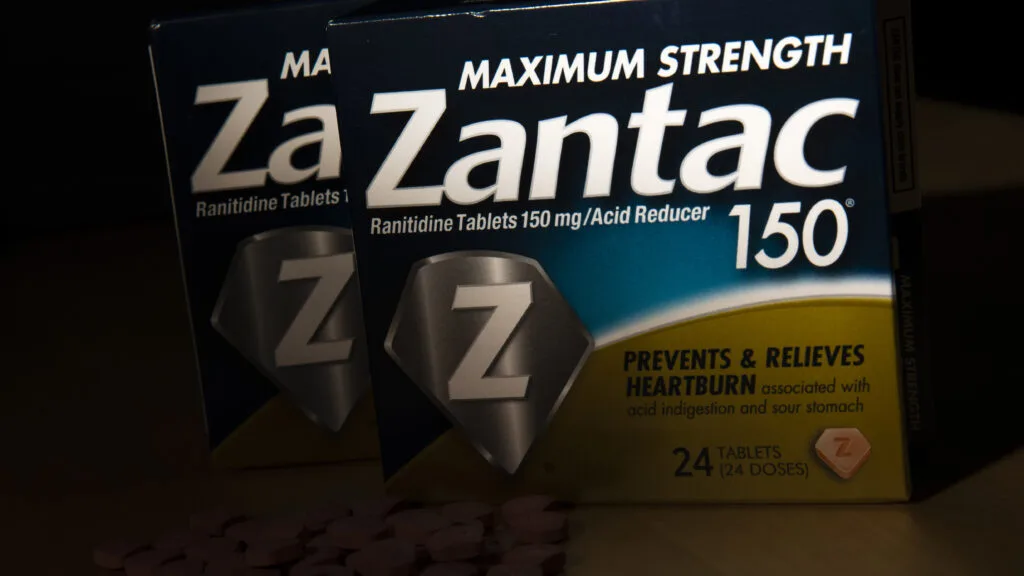In a significant development within the pharmaceutical industry, British drugmaker GSK settles heartburn drug lawsuit in Illinois. This confidential settlement is part of a series of lawsuits alleging that the company’s discontinued heartburn medication, Zantac, caused cancer. The resolution of this case marks a critical moment for GSK, its consumers, and the broader industry. This article explores the details of this case as GSK settles heartburn drug lawsuit, its implications, and the future of drug safety regulations.
GSK Settles Heartburn Drug Lawsuit: The Zantac Controversy
Zantac, once a popular medication for treating heartburn, became the center of controversy when studies indicated that it might contain NDMA (N-nitrosodimethylamine), a probable human carcinogen. This discovery led to a wave of lawsuits from patients claiming that their use of Zantac resulted in various forms of cancer. Plaintiffs accused GSK of failing to warn consumers adequately about these potential risks, leading to widespread concern and litigation.
GSK Settles Heartburn Drug Lawsuit: The Details
GSK has opted for a confidential settlement to resolve the lawsuit in Illinois. The specifics of the settlement remain undisclosed, but this strategic move allows GSK to manage its legal liabilities while focusing on its core business operations. Notably, the settlement does not constitute an admission of guilt but rather reflects a pragmatic approach to resolving legal disputes efficiently.
According to sources, GSK reached the settlement with plaintiff Ronald Kimbrow, resolving a case related to its discontinued heartburn medicine. The confidential nature of the settlement prevents disclosure of the financial terms or any specific agreements made between the parties involved.
Implications for GSK and the Pharmaceutical Industry
Financial and Reputational Impact
As GSK settles heartburn drug lawsuit, it helps mitigate both financial and reputational damage. The company can avoid the costs and uncertainties associated with prolonged litigation. Furthermore, by settling out of court, GSK can focus on rebuilding its reputation and trust among consumers and stakeholders.
The pharmaceutical industry, in general, may view this settlement as a precedent for handling similar lawsuits. It underscores the importance of transparency, rigorous safety testing, and proactive risk management. Companies must prioritize patient safety and ensure comprehensive communication about potential drug risks to maintain public trust and avoid legal repercussions.
Regulatory Implications
The Zantac controversy has highlighted the essential role of regulatory bodies such as the FDA in ensuring drug safety. These agencies are responsible for approving and monitoring pharmaceuticals to protect public health. The Zantac controversy case emphasizes the need for robust regulatory frameworks and enhanced post-market surveillance to detect and address potential risks promptly.
The Role of Regulatory Authorities As GSK Settles Heartburn Drug Lawsuit
In response to the Zantac controversy, regulatory bodies have become more vigilant in their oversight of pharmaceuticals. The FDA, for instance, requested the removal of all ranitidine products (the active ingredient in Zantac) from the market in 2020 after discovering unacceptable levels of NDMA in the drugs. This action underscored the need for continuous monitoring and stringent safety standards to protect consumers.
As GSK settles heartburn drug lawsuit, it reinforces the importance of regulatory oversight. It serves as a reminder to pharmaceutical companies of the potential consequences of inadequate safety measures and the importance of maintaining transparency with regulatory agencies and consumers.
Impact on Patients and Consumers
Resolution for Affected Patients
The settlement offers a degree of resolution for patients who have been affected by Zantac-related health issues. It provides some measure of compensation and closure for those who have suffered as a result of using the medication. However, the confidential nature of the settlement means that many details remain unknown to the public, leaving some questions unanswered.
Health and Safety Concerns
For consumers, the Zantac controversy and subsequent lawsuit settlements highlight the need for vigilance when it comes to medication safety. Patients are encouraged to consult healthcare professionals about the risks associated with any medication they are prescribed and to report any adverse effects promptly.
The case also underscores the importance of staying informed about ongoing developments in drug safety. Consumers should be aware of the potential risks associated with medications and understand that regulatory bodies and pharmaceutical companies play a crucial role in ensuring the safety and efficacy of the drugs they use.
GSK’s Response and Future Actions
Commitment to Patient Safety
In response to the lawsuits and ongoing scrutiny, GSK has pledged to conduct further research into the potential risks associated with Zantac. The company is also committed to improving its communication strategies to ensure that consumers are well-informed about the benefits and risks of its products. These steps are crucial for restoring public confidence and demonstrating GSK’s dedication to patient safety.
Enhancing Drug Safety Protocols
As GSK settles heartburn drug lawsuit, it is likely to implement more rigorous safety protocols and enhance its monitoring systems to prevent similar issues in the future. By investing in advanced research and development, the company aims to improve the safety profile of its medications and reduce the likelihood of adverse effects.
The Broader Legal Landscape
Pharmaceutical Litigation Trends
As GSK settles heartburn drug lawsuit, it sets a larger trend in which pharmaceutical companies face increased scrutiny and legal challenges over drug safety. The outcomes of these cases can influence industry practices and regulatory policies, driving advancements in drug safety and consumer protection.
Lessons for the Industry
The Zantac controversy serves as a cautionary tale for the pharmaceutical industry. It highlights the importance of rigorous safety testing, transparent communication, and proactive risk management. Companies must prioritize patient safety and work closely with regulatory bodies to ensure that their products meet the highest safety standards.
Conclusion
GSK settles heartburn drug lawsuit is a landmark event for the company and the entire pharmaceutical industry. It highlights the ongoing need for vigilance in drug safety and the importance of addressing consumer concerns transparently. As GSK moves forward, the lessons learned from this case will shape its future approach to drug development and patient safety, ultimately benefiting both the company and its consumers.
The GSK settles heartburn drug lawsuit is a reminder of the complexities and challenges that pharmaceutical companies face in ensuring the safety and efficacy of their products. It underscores the critical role of regulatory oversight and the need for continuous improvement in safety standards. As the industry evolves, the lessons learned from cases like this will help shape a safer and more transparent future for pharmaceuticals.



